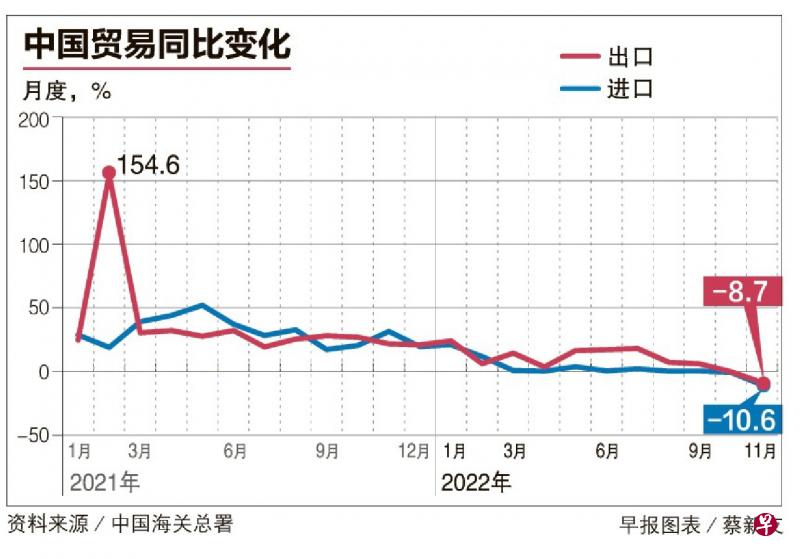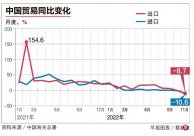
(Beijing Composite Television) The decline in imports and exports in China in November has both increased, showing that the external demand is weak and the domestic supply chain interrupt factors have exacerbated the dual weakness of supply and demand.The decline in exports is the biggest decline since the influence of the first epidemic prevention in 2020.
Comprehensive Reuters and Bloomberg reported that data released on Wednesday (December 7) of the General Administration of Customs showed that the decline in exports in November expanded from 0.3%in October to 8.7%.3.5%.The decline in imports also expanded from 0.7%in October to 10.6%, which was greater than the estimated 6.0%.
The decline in exports in November was the largest decline since February 2020, and imports have been the largest since May 2020.This led to a reduction in the trade surplus from 85.15 billion yuan (USD, the same below, about S $ 115.67 billion) in October in October to 69.84 billion yuan, which is lower than the analyst estimated 78.1 billion yuan.
In the first three quarters of this year, the Chinese economy only increased by 3%, far below the annual goal of about 5.5%.Economists believe that economic growth this year is only 3.2%.
Due to the surge in inflation, global interest rate hike measures, and the edge of the Russian and Ukraine War that pushed the global economy to decline, China's exit shipments declined.
The production interruption caused by the control measures caused by crown disease control measures has also become one of the reasons for the slowdown in exports.
Analysis: The exports may be further shrinking in the next few quarters
The Chinese government has recently launched a series of policy measures to increase the liquidity of the economy and help the real estate department's recovery. Economists believe that measures may not be effective.Export decline may last until December.
Analysts also predict that global economic recession will continue to decline in demand for Chinese goods, and exports in the next few quarters may shrink further.
Zhang Zhiwei, president and chief economist of Pinpoint Management (PINPOINT), judged that China must rely more on domestic demand with global demand.


